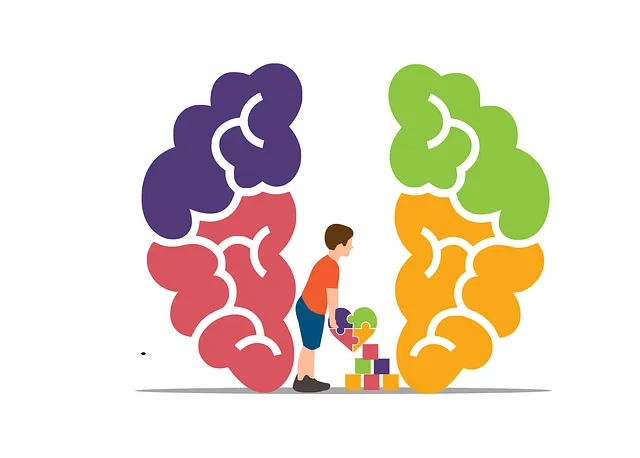The Kaiser Permanente Mental Health Access Center in Greenwood Village employs a holistic, proactive risk management approach. By assessing clinical, environmental, and personal factors, they ensure safe, tailored support for clients. Integrating strategies like Inner Strength Development and Mood Management, along with crisis intervention guidance and cultural competency training, the center promotes positive mental health outcomes. They serve as a key community pillar, leveraging expertise to cater to diverse populations and advocate for evidence-based policies. Through continuous monitoring, adaptive planning, and staff well-being initiatives, they maintain a dynamic, safe environment for patients and practitioners alike.
Mental health professionals face unique challenges, necessitating robust risk management planning. This article explores essential strategies tailored to the complex landscape of mental healthcare, focusing on the Kaiser Permanente Mental Health Access Center in Greenwood Village as a model for excellence. We’ll delve into understanding risk management, identifying and assessing clinical risks, developing comprehensive plans, and implementing monitoring strategies for professional safety. By examining these components, mental health practitioners can enhance patient care and mitigate risks effectively.
- Understanding Risk Management in Mental Health Care
- The Role of Kaiser Permanente Mental Health Access Center in Greenwood Village
- Identifying and Assessing Risks in Clinical Practice
- Developing a Comprehensive Risk Management Plan
- Implementing and Monitoring Strategies for Professional Safety
Understanding Risk Management in Mental Health Care

Risk management planning is an essential aspect of mental health care, ensuring professionals can navigate complex situations with confidence and resilience. At the Kaiser Permanente Mental Health Access Center in Greenwood Village, this approach focuses on identifying potential risks and implementing strategies to mitigate their impact. It involves a holistic understanding of various factors that may influence client outcomes, encompassing not only clinical challenges but also environmental and personal aspects.
By integrating concepts like Inner Strength Development, Social Skills Training, and Mood Management into risk assessment, mental health professionals can anticipate and address diverse needs. This proactive approach allows for the creation of tailored support systems, fostering a safer and more nurturing environment. Effective risk management enables practitioners to enhance client safety while promoting positive outcomes, ultimately reflecting the center’s commitment to comprehensive mental well-being.
The Role of Kaiser Permanente Mental Health Access Center in Greenwood Village

The Kaiser Permanente Mental Health Access Center in Greenwood Village plays a pivotal role in enhancing mental healthcare accessibility and support for the community. As a dedicated resource, it offers comprehensive services tailored to meet the unique needs of individuals seeking mental health assistance. The center’s mission aligns with the broader goals of improving overall wellness and promoting resilience within the region.
Through its various programs, the access center provides crucial Crisis Intervention Guidance, ensuring that residents have access to immediate support during times of crisis. Additionally, they offer Healthcare Provider Cultural Competency Training, recognizing the importance of diverse perspectives in mental healthcare. This training equips professionals with the skills to address the nuanced needs of a culturally varied population, fostering an inclusive environment. The center’s involvement in Mental Health Policy Analysis and Advocacy further strengthens its contribution, as it stays abreast of industry trends and advocates for evidence-based policies that prioritize mental well-being.
Identifying and Assessing Risks in Clinical Practice

Identifying and assessing risks is a cornerstone of effective risk management planning for mental health professionals, particularly those operating within specialized centers like the Kaiser Permanente Mental Health Access Center in Greenwood Village. This involves a comprehensive evaluation of various factors that could pose potential threats to both clients and practitioners. Risks can manifest in many forms, from ethical dilemmas and legal considerations to physical safety concerns and emotional distress.
Mental health professionals must be adept at recognizing signs of escalating client risks, such as violent ideation or suicidal tendencies, through regular risk assessments. Moreover, they should also scrutinize internal processes and practices, ensuring adherence to guidelines like Crisis Intervention Guidance and leveraging resources like Public Awareness Campaigns Development for Mental Wellness Podcast Series Production to stay informed and prepared. Continuous monitoring and adaptive planning are key to managing risks effectively in dynamic clinical settings.
Developing a Comprehensive Risk Management Plan

Mental health professionals, much like their medical counterparts at the Kaiser Permanente mental health access center Greenwood Village, face unique challenges that require robust risk management strategies. Developing a comprehensive plan involves acknowledging potential risks and implementing proactive measures to mitigate them. This includes regular Self-Awareness Exercises and resilience-building initiatives to enhance coping mechanisms against overwhelming caseloads or emotionally taxing situations.
By integrating Burnout Prevention techniques into their practice, professionals can ensure sustained well-being and optimal patient care. A well-crafted risk management plan should be dynamic, allowing for adjustments as new challenges emerge. Drawing from the insights gained through regular reflection and continuous education, mental health practitioners in Greenwood Village can navigate complex situations with resilience, ensuring they remain equipped to provide effective support to their clients.
Implementing and Monitoring Strategies for Professional Safety

Implementing strategies for professional safety is a critical component of risk management planning for mental health professionals. At the Kaiser Permanente Mental Health Access Center in Greenwood Village, this involves a multi-faceted approach. First, establishing clear protocols for crisis intervention ensures that professionals are equipped to handle urgent situations effectively, enhancing both patient and provider security. Regular staff training sessions on de-escalation techniques, suicide prevention, and trauma support services further fortify these protocols.
Monitoring strategies play a pivotal role in sustaining a safe work environment. Continuous evaluation of risk assessment tools and data analytics enables the center to identify trends and potential hazards early on. This proactive approach allows for timely adjustments to policies and practices, fostering an adaptive culture that prioritizes public awareness campaigns development and mental health policy analysis and advocacy. Such initiatives ultimately contribute to a more robust safety net for both patients and practitioners.
Mental health professionals face unique challenges, making effective risk management planning paramount. As highlighted by the Kaiser Permanente Mental Health Access Center in Greenwood Village, a structured approach can significantly enhance professional safety and patient outcomes. By identifying and assessing risks specific to clinical practice, developing comprehensive strategies, and implementing robust monitoring systems, mental health providers can navigate complex scenarios with confidence. This article’s overview of risk management planning serves as a guide for professionals, underscoring the importance of proactive measures in today’s healthcare landscape.






